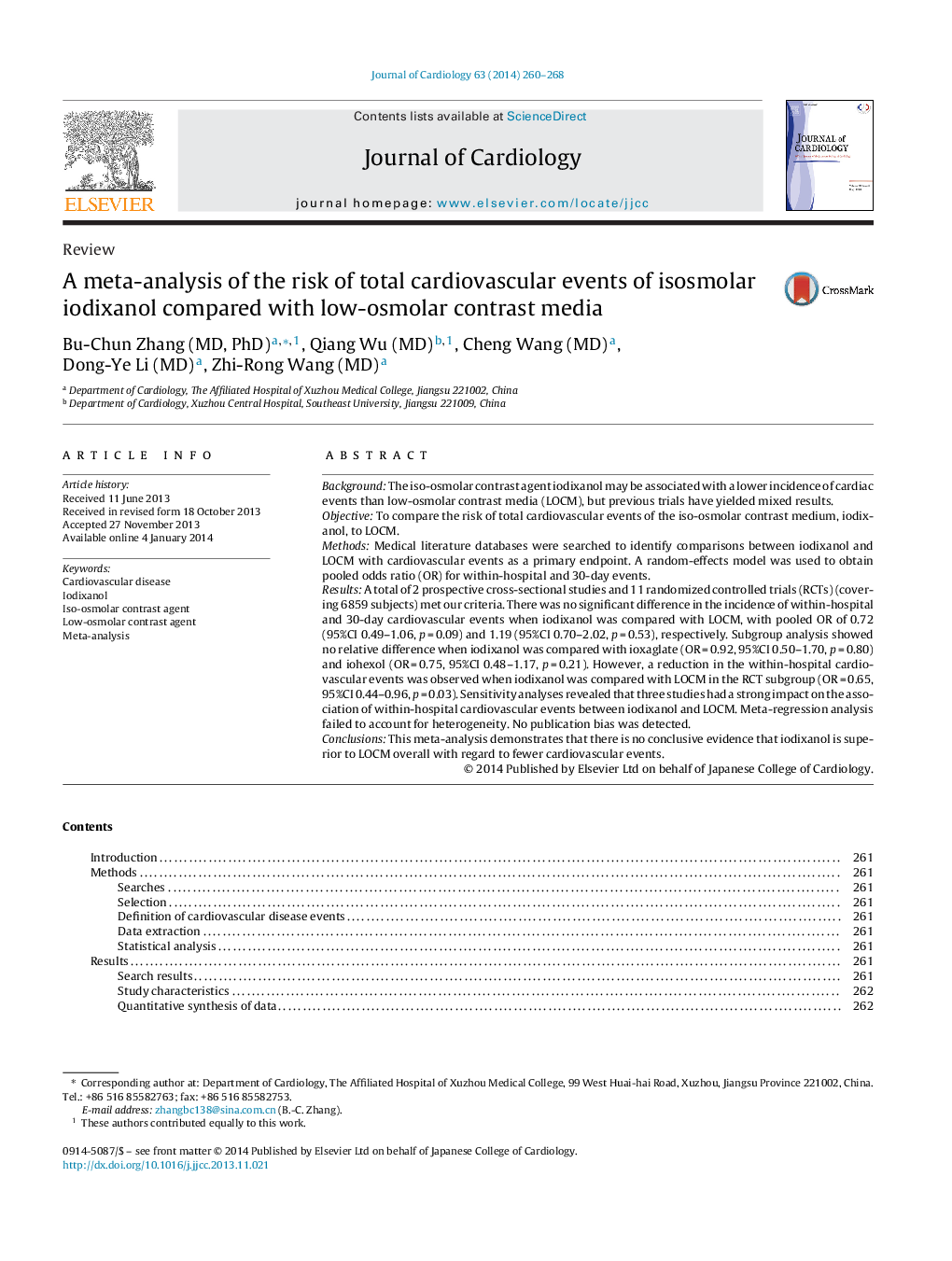| Article ID | Journal | Published Year | Pages | File Type |
|---|---|---|---|---|
| 5984042 | Journal of Cardiology | 2014 | 9 Pages |
BackgroundThe iso-osmolar contrast agent iodixanol may be associated with a lower incidence of cardiac events than low-osmolar contrast media (LOCM), but previous trials have yielded mixed results.ObjectiveTo compare the risk of total cardiovascular events of the iso-osmolar contrast medium, iodixanol, to LOCM.MethodsMedical literature databases were searched to identify comparisons between iodixanol and LOCM with cardiovascular events as a primary endpoint. A random-effects model was used to obtain pooled odds ratio (OR) for within-hospital and 30-day events.ResultsA total of 2 prospective cross-sectional studies and 11 randomized controlled trials (RCTs) (covering 6859 subjects) met our criteria. There was no significant difference in the incidence of within-hospital and 30-day cardiovascular events when iodixanol was compared with LOCM, with pooled OR of 0.72 (95%CI 0.49-1.06, p = 0.09) and 1.19 (95%CI 0.70-2.02, p = 0.53), respectively. Subgroup analysis showed no relative difference when iodixanol was compared with ioxaglate (OR = 0.92, 95%CI 0.50-1.70, p = 0.80) and iohexol (OR = 0.75, 95%CI 0.48-1.17, p = 0.21). However, a reduction in the within-hospital cardiovascular events was observed when iodixanol was compared with LOCM in the RCT subgroup (OR = 0.65, 95%CI 0.44-0.96, p = 0.03). Sensitivity analyses revealed that three studies had a strong impact on the association of within-hospital cardiovascular events between iodixanol and LOCM. Meta-regression analysis failed to account for heterogeneity. No publication bias was detected.ConclusionsThis meta-analysis demonstrates that there is no conclusive evidence that iodixanol is superior to LOCM overall with regard to fewer cardiovascular events.
